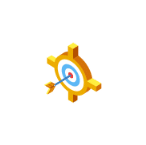If AI Is working smarter, how should we adapt?
Whether improving efficiency, supporting smarter decision-making, or reducing costs, AI is reshaping industries in ways we never saw coming. In fact, McKinsey estimates that AI could automate up to 45% of work activities using current technology. With AI dominating headlines and boardroom discussions, it’s essential to cut through the noise and focus on what truly matters for businesses.
We sat down with Paul Whitelock, Head of Sales at A2Z Cloud, to get his take on AI’s role in modern business, common misconceptions, and what businesses need to do to make AI work for them.

Why is AI so important for businesses right now?
“Businesses are under increasing pressure from rising operational costs to the need for agility. AI helps by automating repetitive tasks, such as handling customer queries, managing inventory, and following up on sales leads. This reduces administrative overhead and frees up time for more valuable work,” says Paul.
AI’s impact extends beyond efficiency gains. AI also provides advanced analytics that were once exclusive to enterprises with dedicated data teams. Predictive insights, real-time reporting, and targeted marketing campaigns are now within reach for smaller businesses, levelling the playing field.
Paul also highlights the importance of ethics. Privacy focused AI models such as Zoho’s approach offer businesses a way to use AI responsibly, without the intrusive data collection seen in some mainstream platforms.
“For businesses in regulated sectors like finance and healthcare, this is a key differentiator. If you’re not investing in AI, you risk falling behind. Just like Blackberry did when it failed to keep up with smartphone evolution.”
How is AI changing day-to-day work?
One of the biggest myths about AI is that it’s a job killer. Paul argues that AI isn’t about replacing humans but redefining roles and improving productivity.
“AI can handle routine tasks, allowing employees to focus on higher value work. Take legal firms, AI-powered contract review tools are reducing drafting time, freeing up lawyers to focus on complex litigation. Similarly, engineers can now use AI simulations to iterate designs faster, accelerating innovation.”
Beyond automating tasks, AI plays a key role in managing the vast amounts of information employees encounter daily. Smart filtering tools can prioritise essential updates, reduce unnecessary notifications, and declutter digital workspaces, helping employees maintain focus on meaningful work rather than getting lost in constant distractions.
This has been demonstrated in real world trials, such as the UK and Germany’s four day work week pilots, which has shown that AI driven automation can actually lead to better work-life balance-without lowering productivity. But success requires a shift in leadership approach.
“Leaders can move from simply overseeing tasks to playing a key role in AI adoption guiding their teams to explore new tools and develop their skills along the way.”
What’s the biggest misconception about AI in the workplace?
Despite growing evidence, the fear that AI will make human workers obsolete still persists. However, research shows that for every job lost to automation, twice as many new roles emerge in AI governance, ethical oversight, and workflow design.
Paul explains: ‘Industry data shows that for every job displaced by automation, more than double the number of new roles emerge in AI governance, workflow design, and ethical oversight.’ He cites BMW’s example: their AI powered ‘cobots’ (collaborative robots) have increased assembly line productivity while also creating new technician roles to oversee AI systems a trend mirrored across industries. These cobots work alongside human employees, taking on repetitive and physically demanding tasks, which allows workers to focus on complex problem solving and quality control. As a result, BMW has reported a 20% boost in production speed and a 15% reduction in errors.
Beyond efficiency gains, this shift has driven the creation of new roles such as AI maintenance specialists and automation engineers, demonstrating that AI isn’t replacing workers but transforming the types of jobs available. BMW has also made significant investments in upskilling programs, ensuring that employees can adapt and thrive in an AI supported work environment. This approach highlights how businesses can harness AI to enhance human potential rather than diminish it.
Many also assume that adopting AI means a complete IT overhaul, but that’s not the case. “In reality, most businesses can start small integrating AI into existing CRM or ERP systems. The key is an incremental, step by step approach rather than an all or nothing strategy.”
How can businesses successfully integrate AI?
Successfully integrating AI into business operations requires a structured approach. Rushing AI adoption without a clear plan can lead to inefficiencies, resistance from employees, and wasted investment. To ensure a smooth transition, businesses should take a phased approach that prioritises long-term success over quick fixes. Paul outlines a four pillar framework:
- Problem specific alignment AI should solve real pain points before scaling. Businesses should start with process audits to identify automation opportunities, such as invoice processing or customer service.
- Human centric design Employees need to see AI as a collaborator, not a threat. Companies like PwC have trained 85,000 employees in prompt engineering and ethical AI usage to ensure adoption is smooth.
- Ethical scaffolding AI should be transparent and compliant. Tools like IBM’s AI Explainability 360 help businesses maintain trust by making AI decisions interpretable.
- Gradual scaling Companies should start small, refine, and expand rather than attempt a radical transformation overnight. “Learn to walk before you run,” Paul advises.
Which industries stand to gain the most?
AI has the potential to benefit every industry, but Paul highlights three areas where its impact is already significant.:
Healthcare – AI-driven diagnostics reduce errors, while robotic surgery speeds up patient recovery. AI-led drug discovery has already cut oncology R&D timelines from 10 years to just 18 months.
Manufacturing – AI-powered production lines save energy and increase efficiency. Computer vision tools detect defects with 99.5% accuracy, a 50% improvement over human inspectors.
Professional Services – AI contract drafting accelerates legal work, and compliance automation allows auditors to focus on risk analysis instead of admin-heavy checks.
In customer-facing roles, AI is reshaping engagement. Tools like Zoho CRM’s AI sentiment analysis help sales teams prioritise leads with 90% precision, while AI-generated content allows marketers to launch campaigns faster—with humans refining the brand voice for impact.
Final thoughts
Integrating AI into business operations creates opportunities for growth, allowing companies to make better decisions, reduce inefficiencies, and stay ahead in competitive markets.
Industries that have successfully integrated AI are already seeing measurable benefits: increased productivity, cost savings, and the ability to make faster, data-driven decisions. Adopting AI requires a leadership approach that fosters adaptability and long-term vision. Leaders must focus on upskilling employees and ensuring ethical AI implementation to remain competitive.
“AI’s real power lies in its ability to create opportunities that weren’t possible before, transforming industries in unexpected ways,” Paul concludes.
How will your business adapt to AI?

Share this article
Join the A2Z Angle
Looking to stay ahead of the curve in the fast-paced world of tech? Look no further than A2Z Cloud's monthly newsletter. Join us today for exclusive access to deep dives on all the techie subjects you crave, with must read content from our top partners, plus exciting event announcements and inspiring customer stories.
It's all delivered straight to your inbox, once a month only, so you never miss a beat. Sign up below.

















